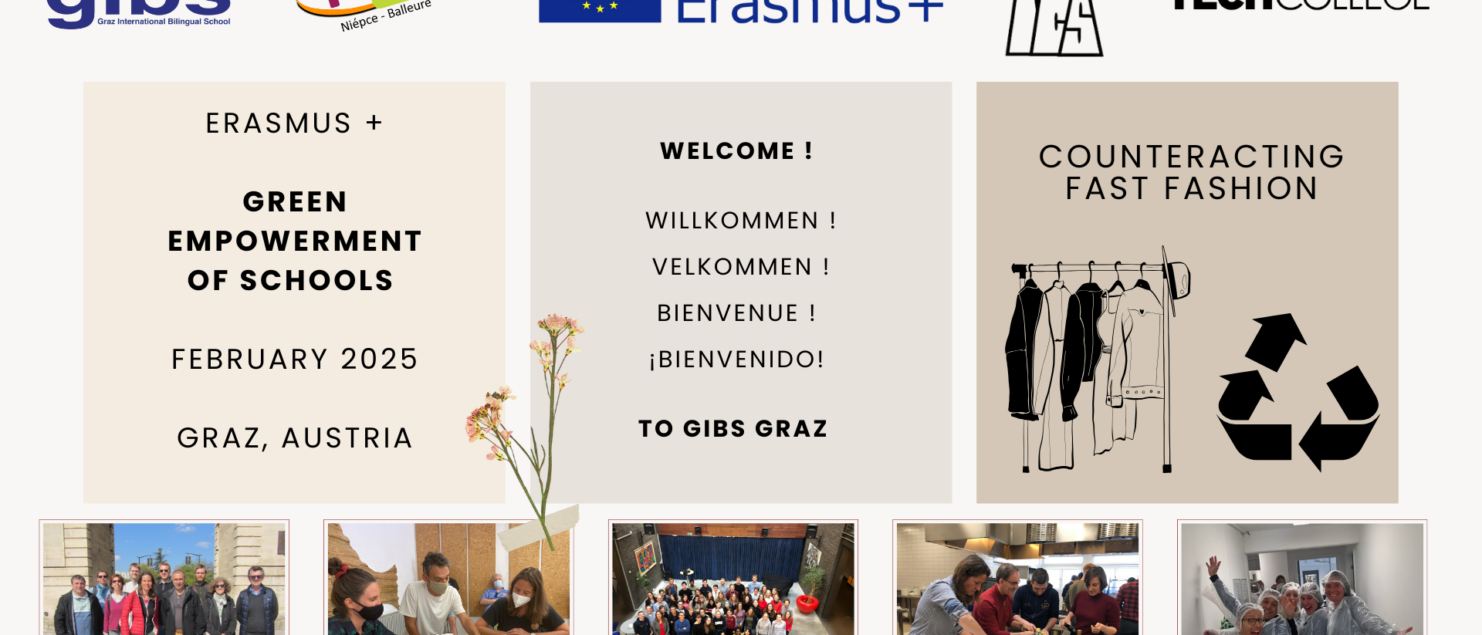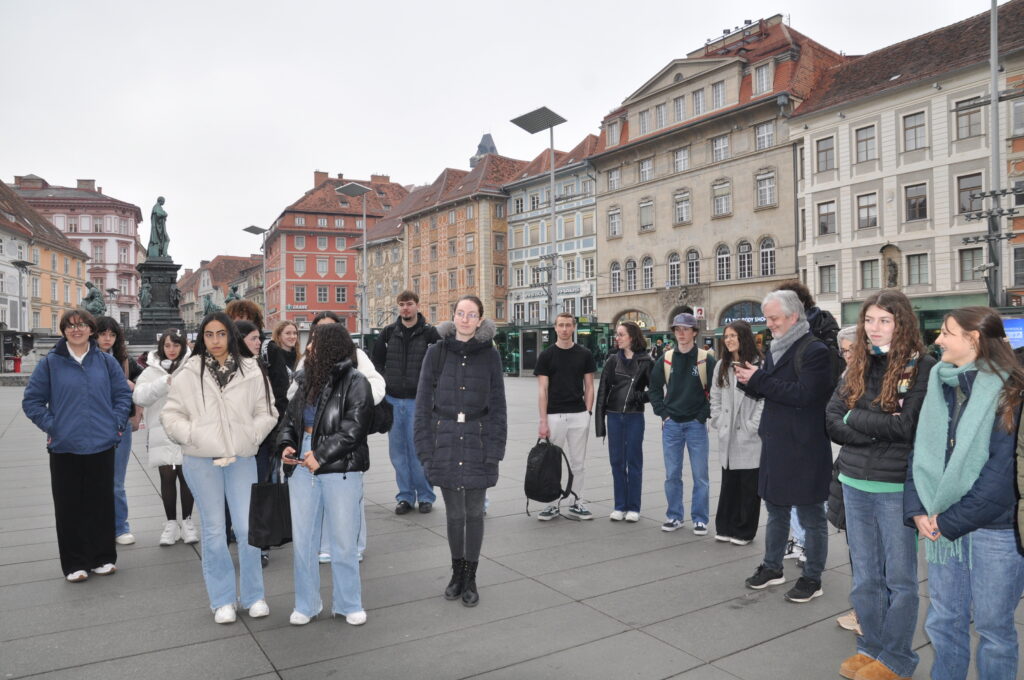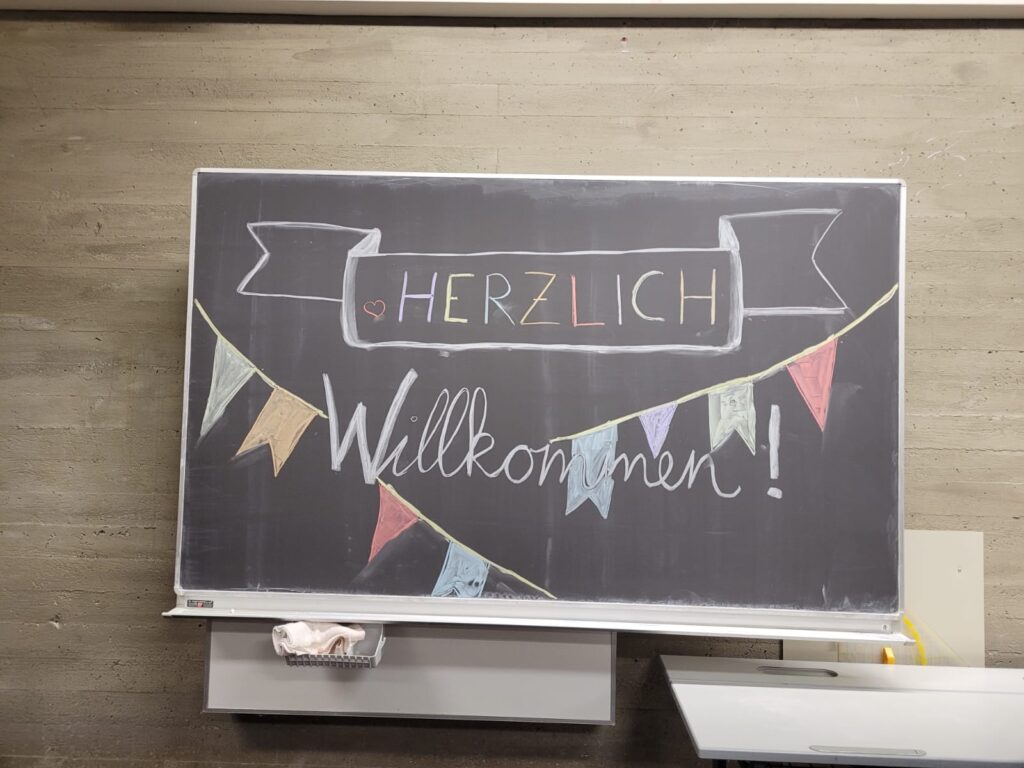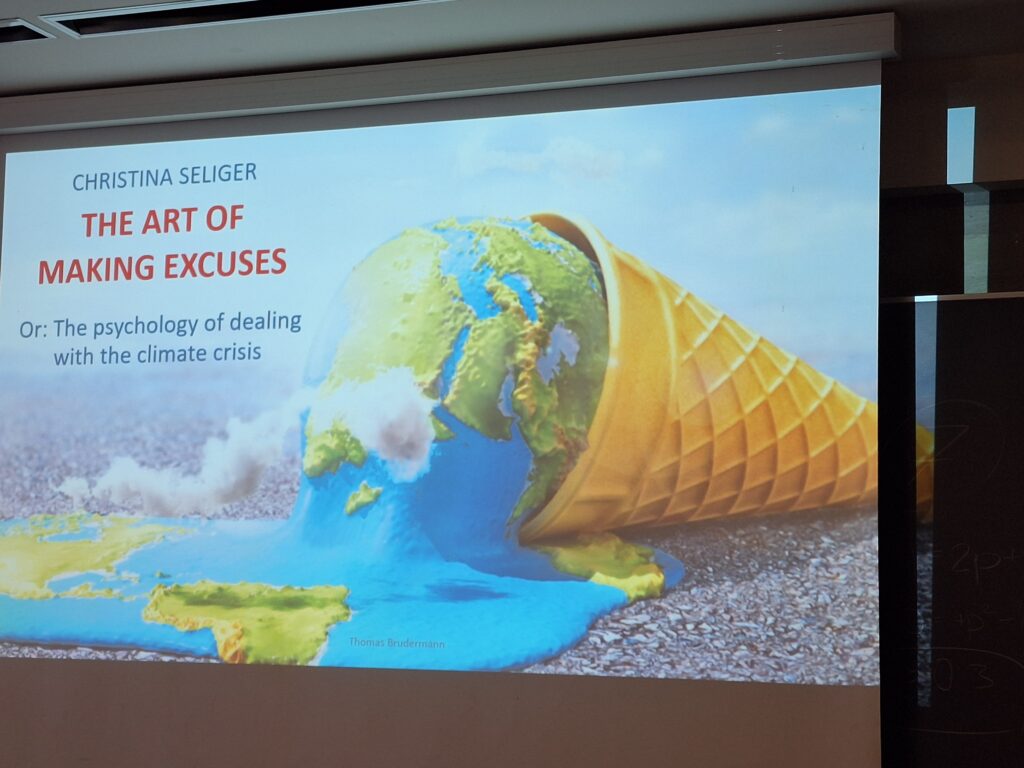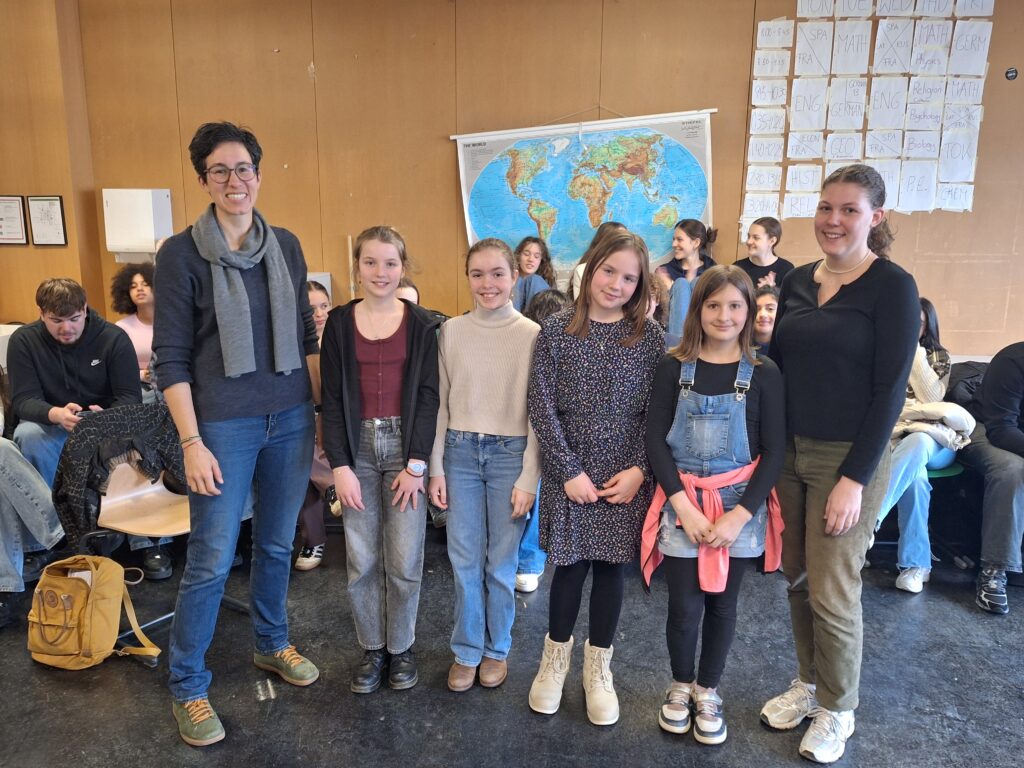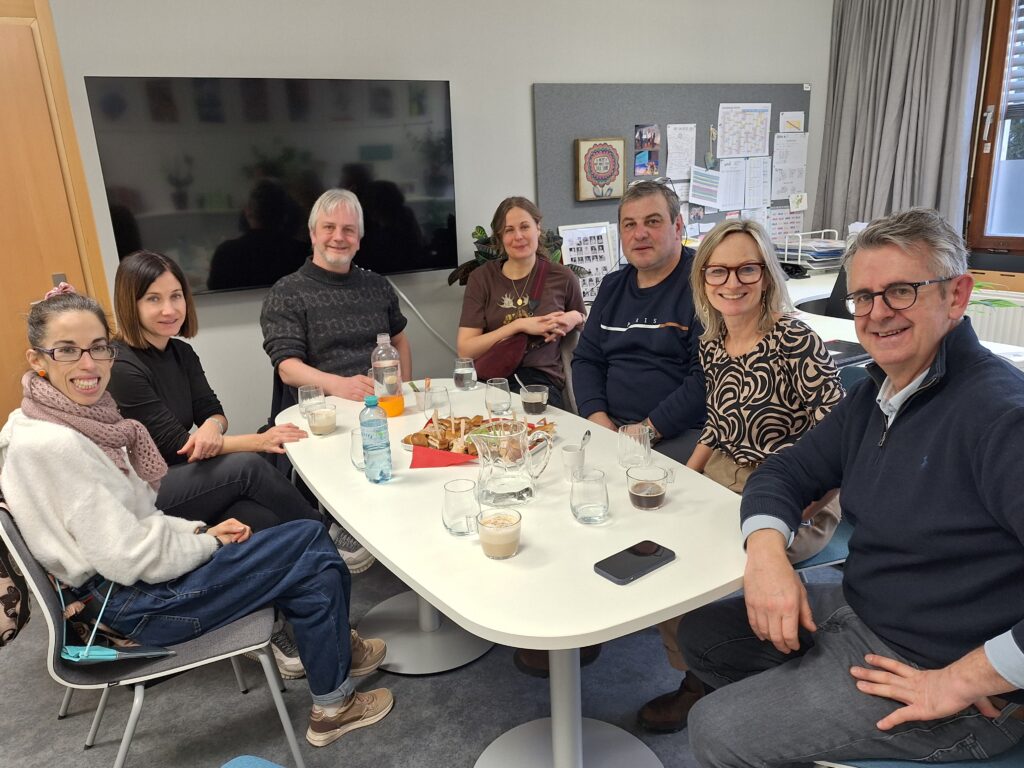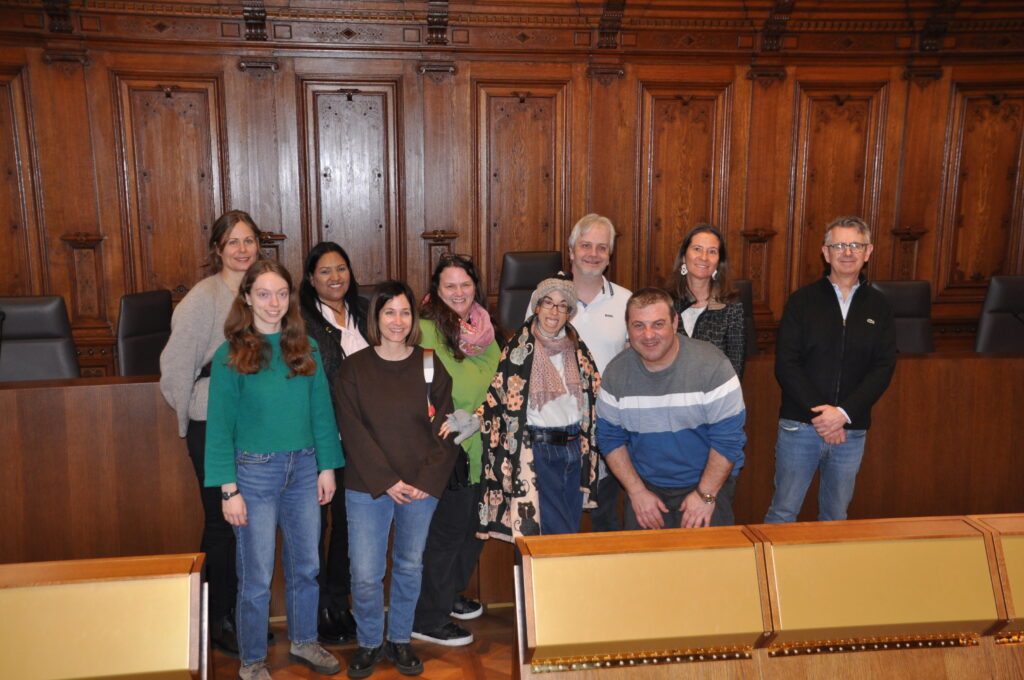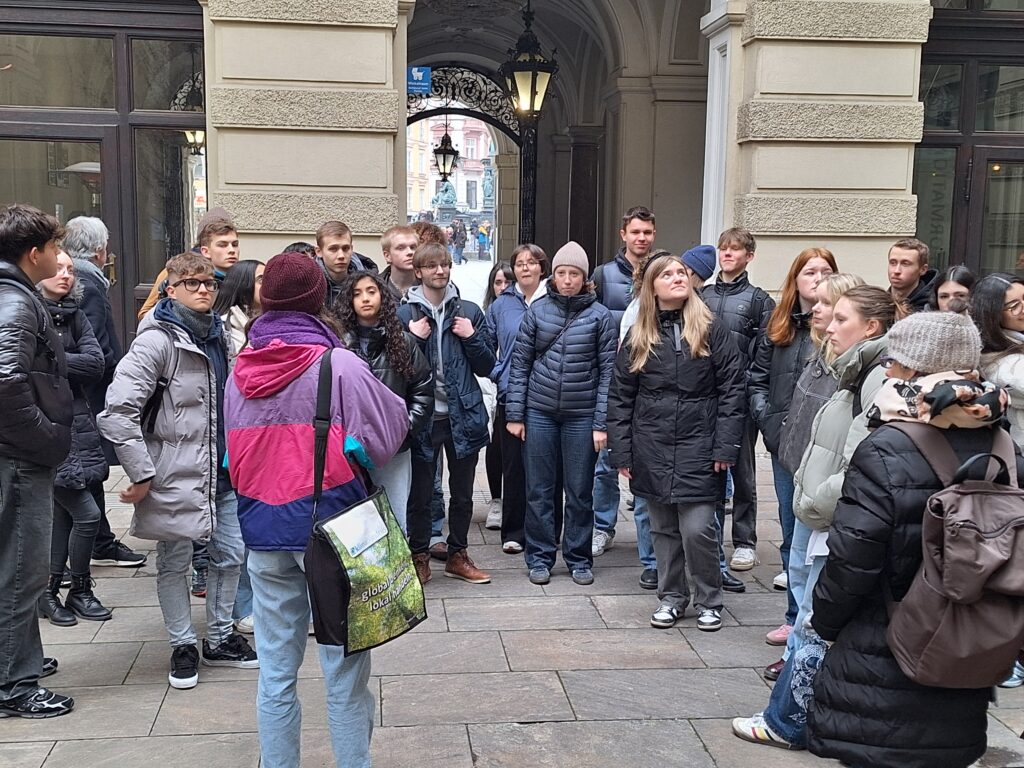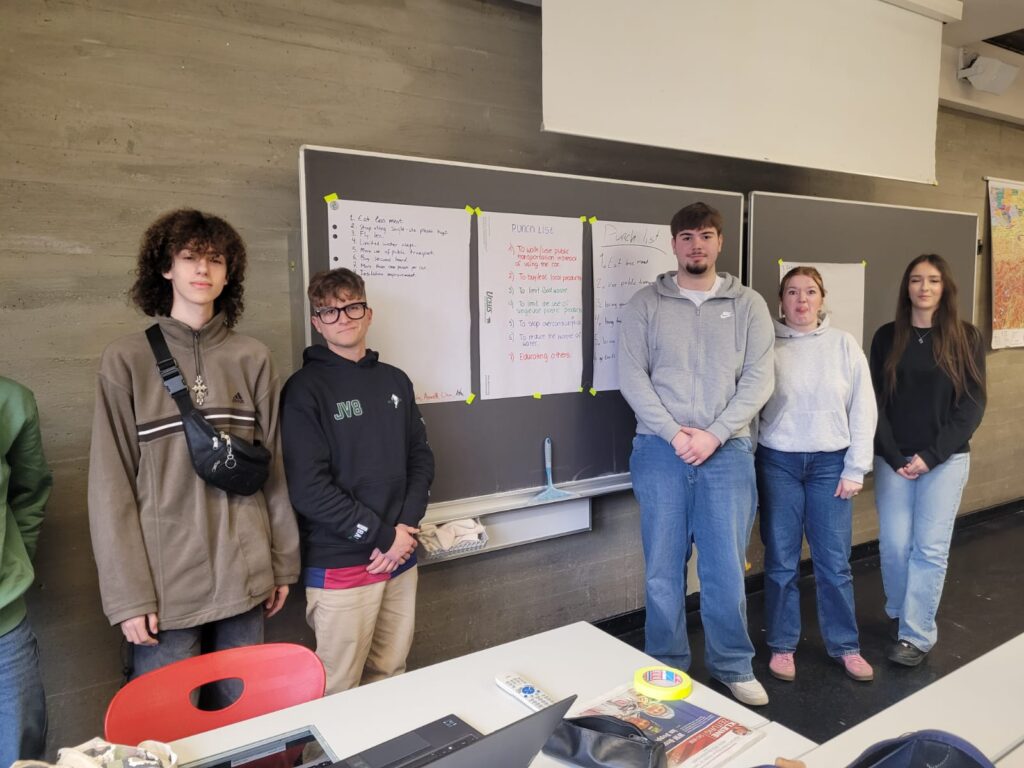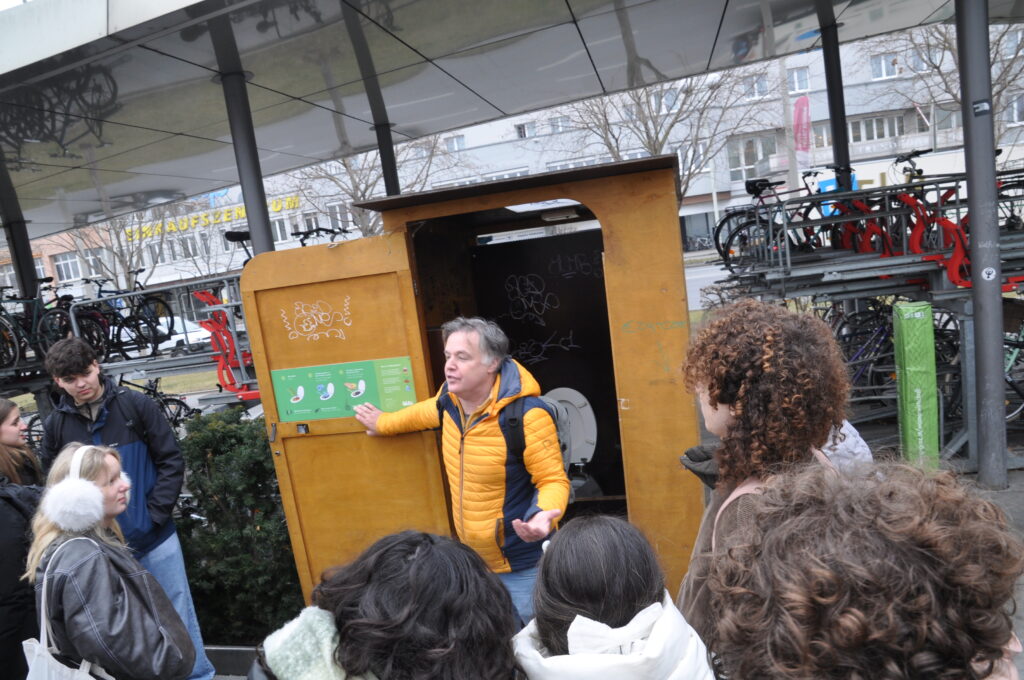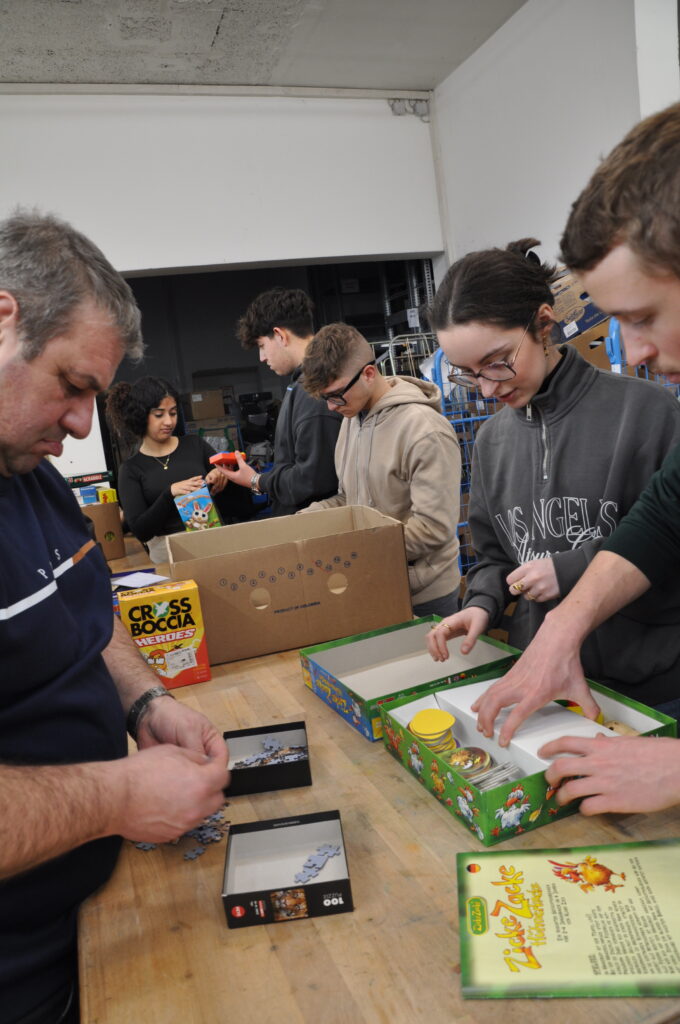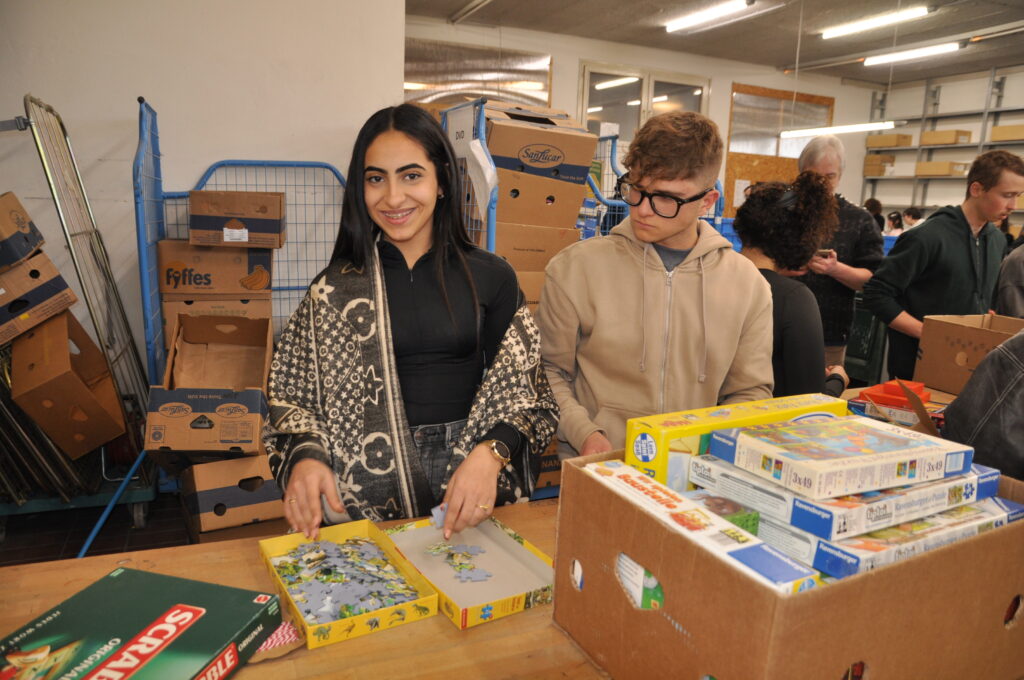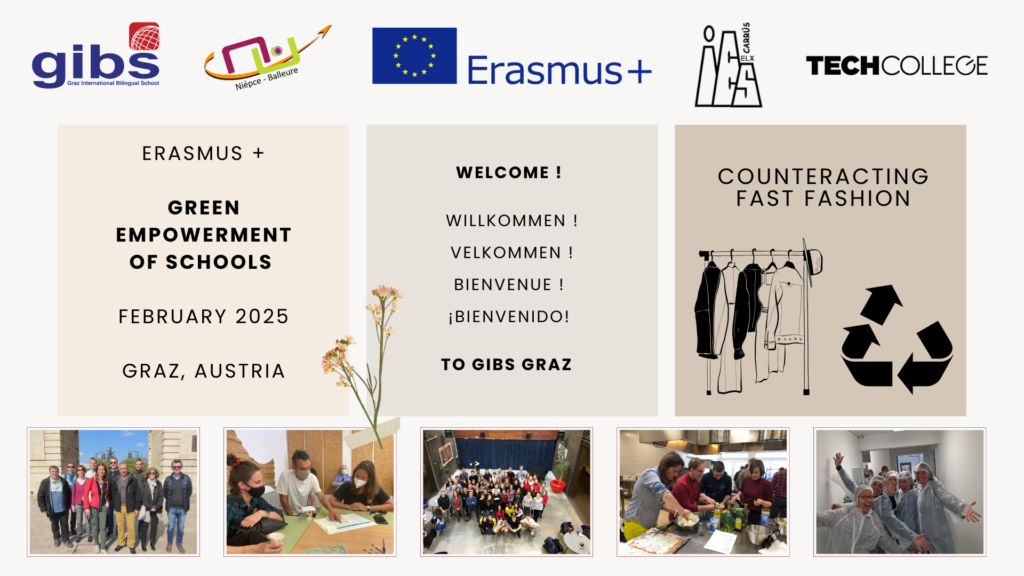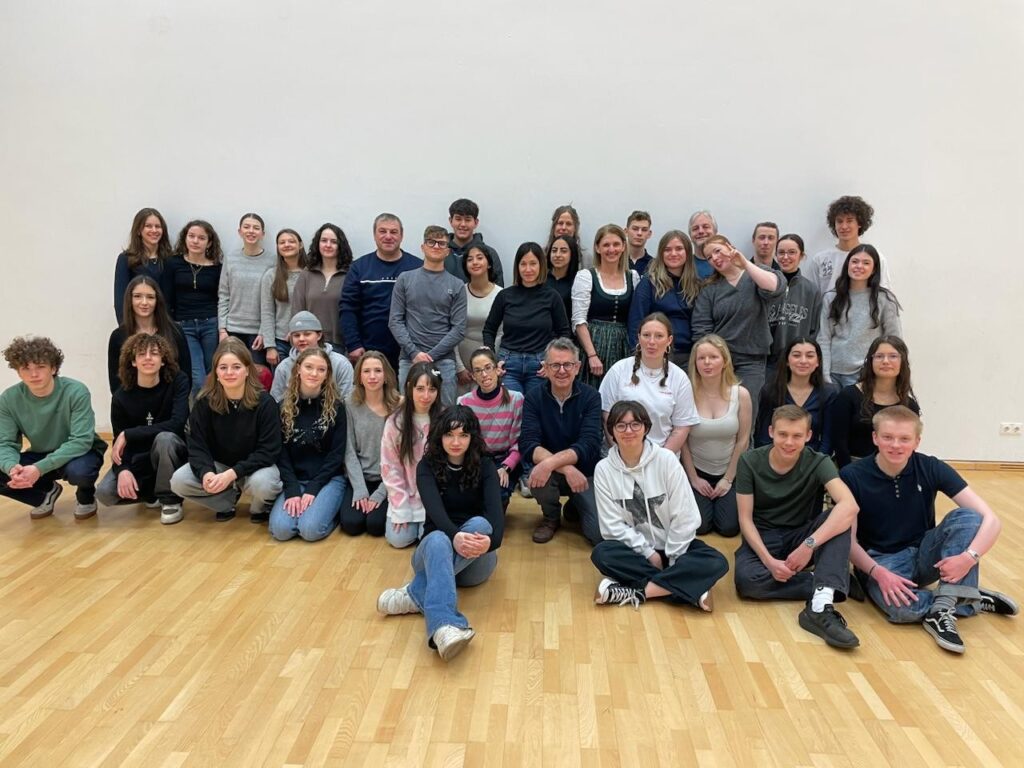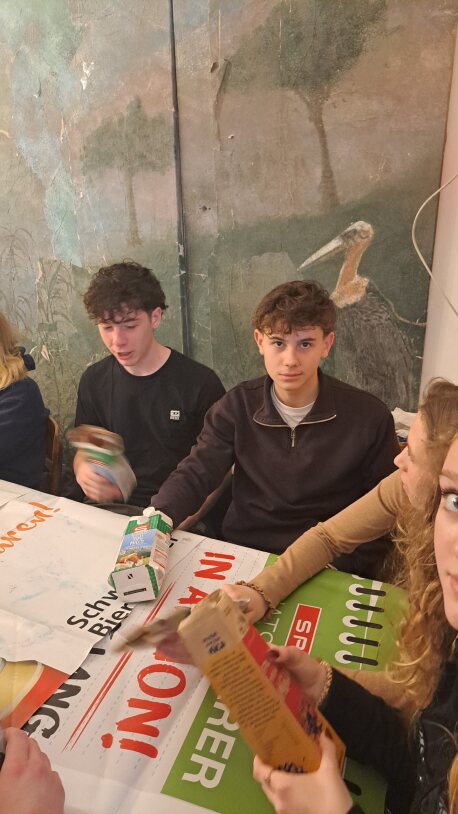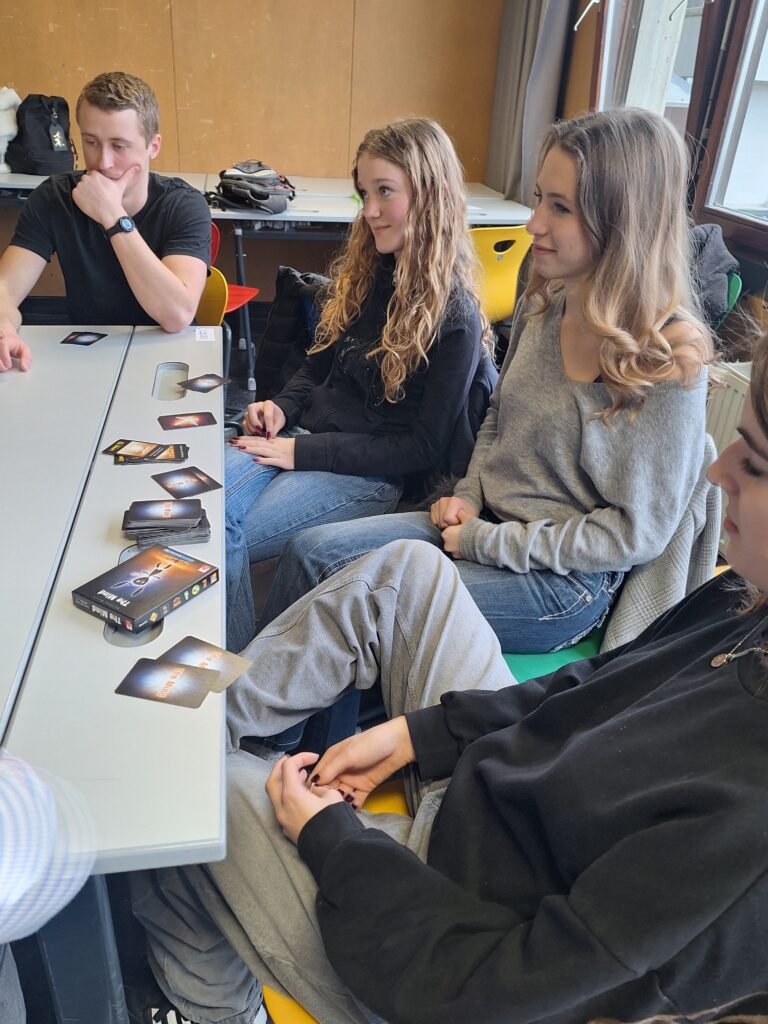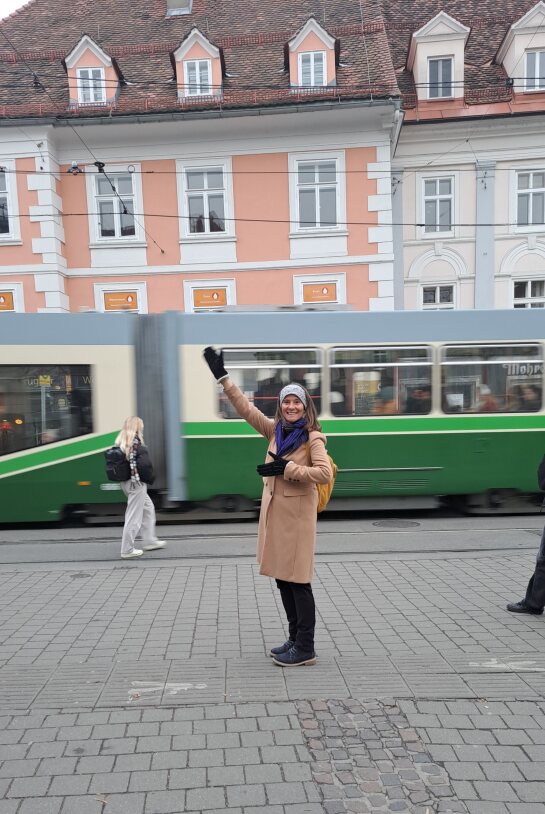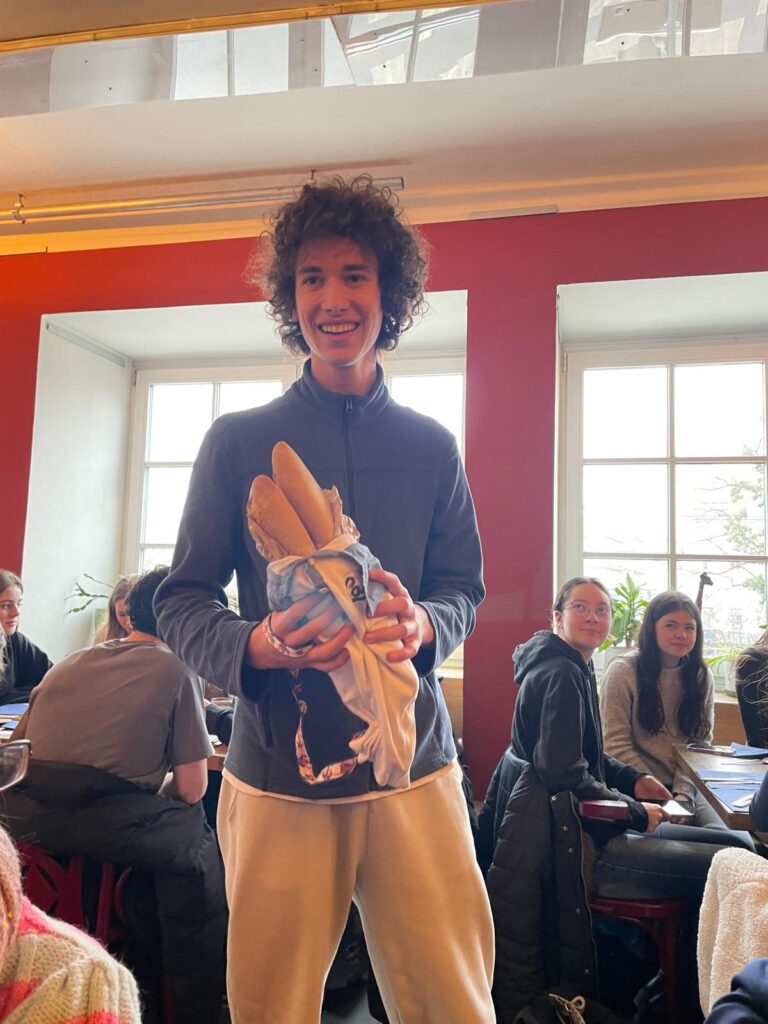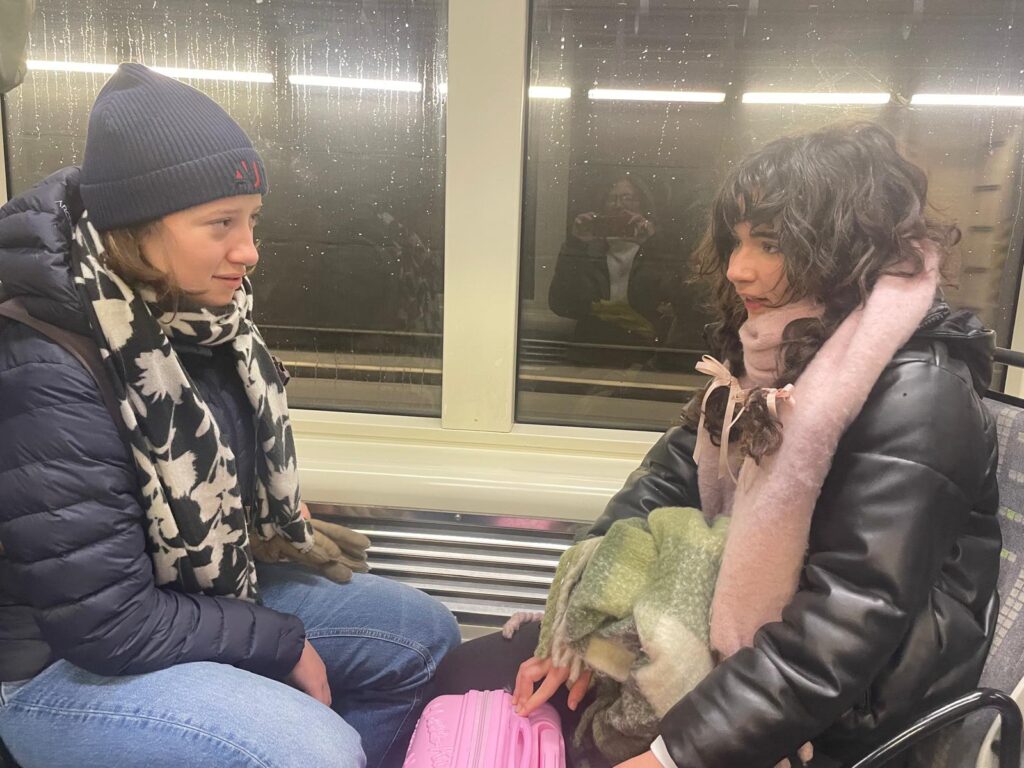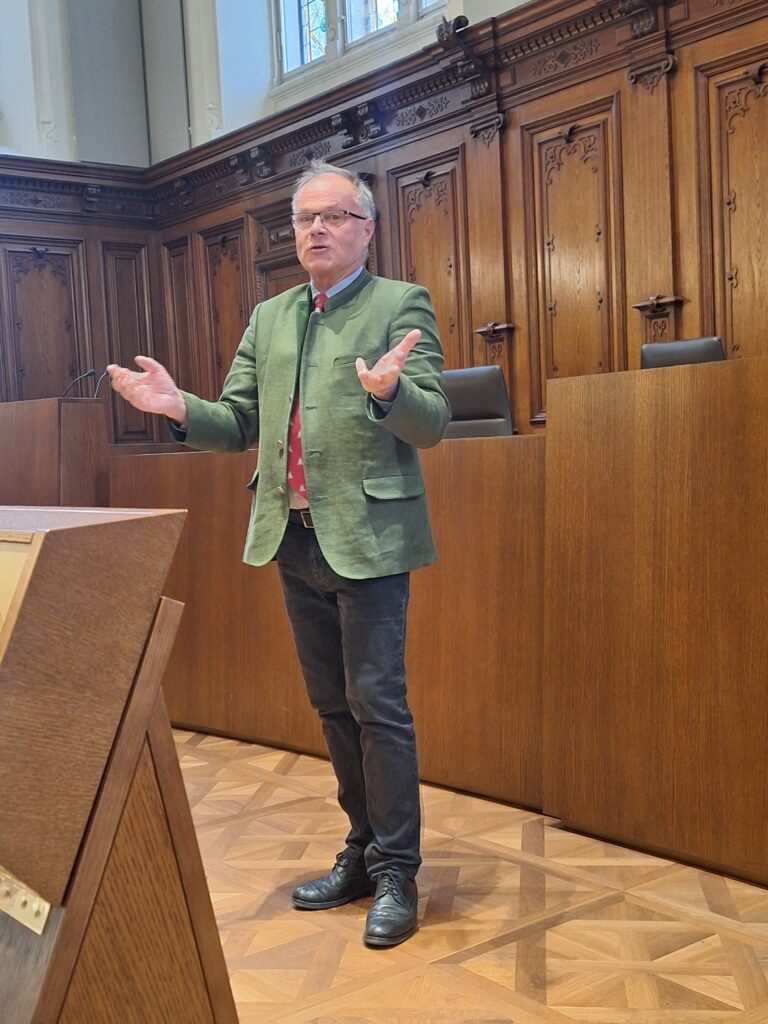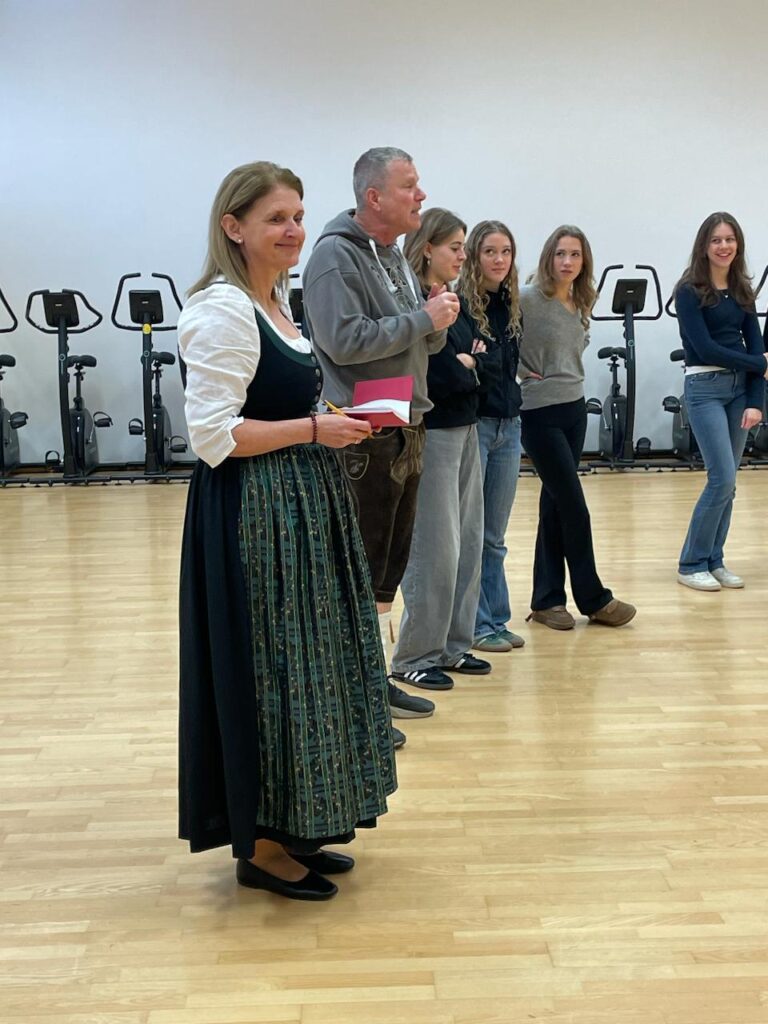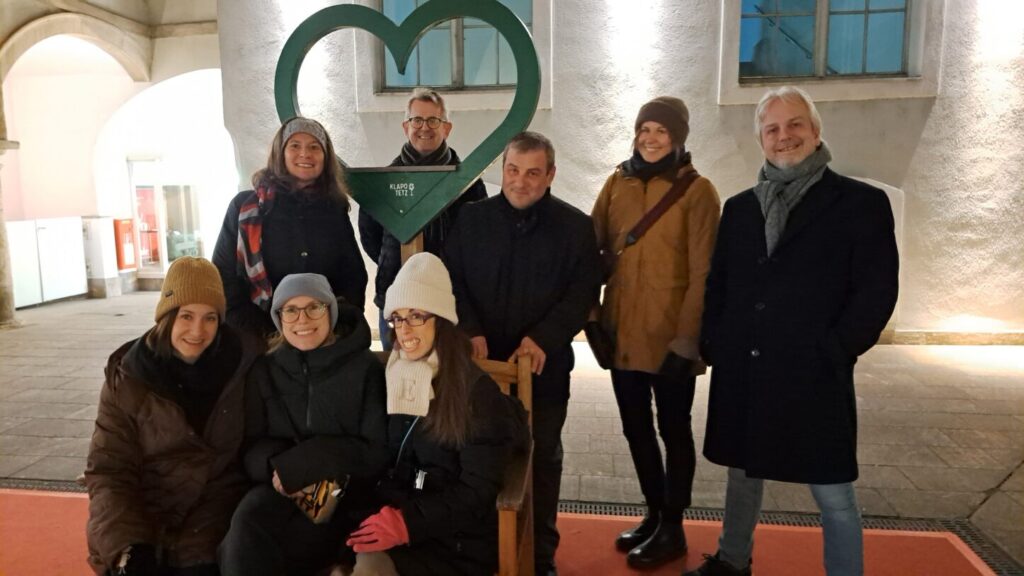Green Empowerment of Schools

The goal of all the workshops is to bring together young people from the four partner countries, to let them spend a week in the respective schools, to enjoy Austrian, Danish, French and Spanish hospitality in host families and to develop ideas for a better, more peaceful and sustainable way of life.
The goal of our workshop in Graz was/is to educate students about sustainable garbage management practices and the importance of recycling and upcycling in minimizing environmental impact and in protecting human life.
We focused on these key aspects of sustainability
- Waste reduction with a special focus on educating students about mindful consumption habits.
An alternative city tour focusing on waste with Joachim Hainzl helped to understand how much is thrown away that can still be used, like a flower Joachim saved for his girlfriend for Valentine’s Day. The second city tour that brought new ideas was the Graz Climate City Walk (Graz 2040 & greening facades, yesterday’s bread & sustainable consumption, out and about in the city: bike, tram or car sharing).
- Recycling and proper disposal practices: Students will learn how they can help conserve valuable resources as well as save energy and reduce greenhouse gas emissions by recycling materials such as paper, plastic, glass, and metal
The GIBS Climate Action Group, led by Michaela Blumrich and Johanna Schönthaler, provided a PowerPoint presentation and an entertaining and inspiring kahoot for the participants. Michaela Blumrich organised the discussion that followed the screening of “2040”, a film about sustainable/regenerative solutions to our climate crisis and earth system problems, and what the world could look like in 15 years if we continue to work on solutions. The focus was on discussing solutions rather than just the problems we all know exist.
- Reprocessing or upcycling garbage into new products
The Arts and Crafts team, Laurel Scofield, Daniela Knapp and Evelyn Rieger (retired), managed to give new life to clothes and accessories that the students had brought to the workshop. An old shirt was transformed into a beautiful shopping bag, just the right size for a baguette and presented in a fabulous fashion show. Most of the students had never used a sewing machine before, so it was a successful first experience for them.
Nazreen Mikol organized a workhop at Heidenspass where the students produced cool and stylish bags. Philipp Stummer and Alice Parrot joined in and helped with the production.
Laurel Scofield and Ulrike Saringer-Maier organized a rewarding hands-on experience at the CARLA secondhand shops. The students helped with sorting of donated items such as cardboard games, books, clothes … The name Carla is made up of the words CARitas and LAden. In these second-hand shops, used and well-preserved items are sold, which have previously been donated to Caritas by private individuals or companies.
- Debunking climate excuses and learning the art of debating.
The lecture THE ART OF MAKING EXCUSES or: The psychology of dealing with the climate crisis. by Christina Seliger from the University of Graz opened the students’ eyes to how “climate excuses” prevent people from acting in a sustainable and environmentally friendly way. While small actions such as turning off lights and taps make sense, big changes can be made by reducing road and air travel, consuming less meat and textiles, and avoiding the production of bitcoins. The lecture was followed by a real debate organized by Marcas O’Cribin. Session 1: What makes a good debate? What makes a good speech? 2nd session: Overview of the Open Parliamentary Format. The question was whether an individual carbon credit system or a government-led carbon credit trading system would be more beneficial in the long run.
Documentation, feedback, photography:
Ulrike Saringer-Maier
Music and dance:
Brigitte Greimel-Wasner, Peter Hois, Viktoria Kranawetter, Christina Vide
GIBS students from 6abi, 7abi
Project management:
Martina Pfistermüller-Czar and Ulrike Saringer-Maier
Project Schedule
- First workshop week – February 2025 – Graz, GIBS
- Second workshop week – May 2025 – Chalon-sur-Saône Lycée Niepce
- Third workshop week – November 2025 – Elche, IES Carrús
- Fourth workshop week – April 2026 – Aalborg, Tekniske Gymansium

